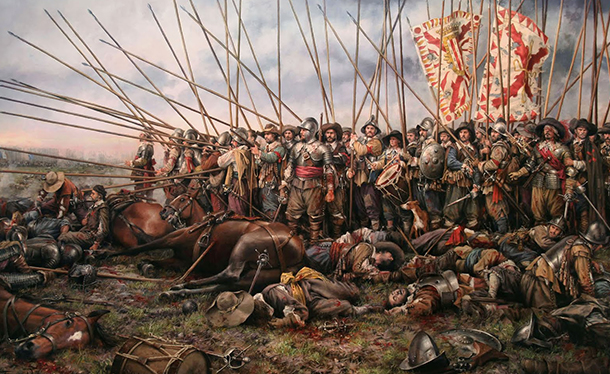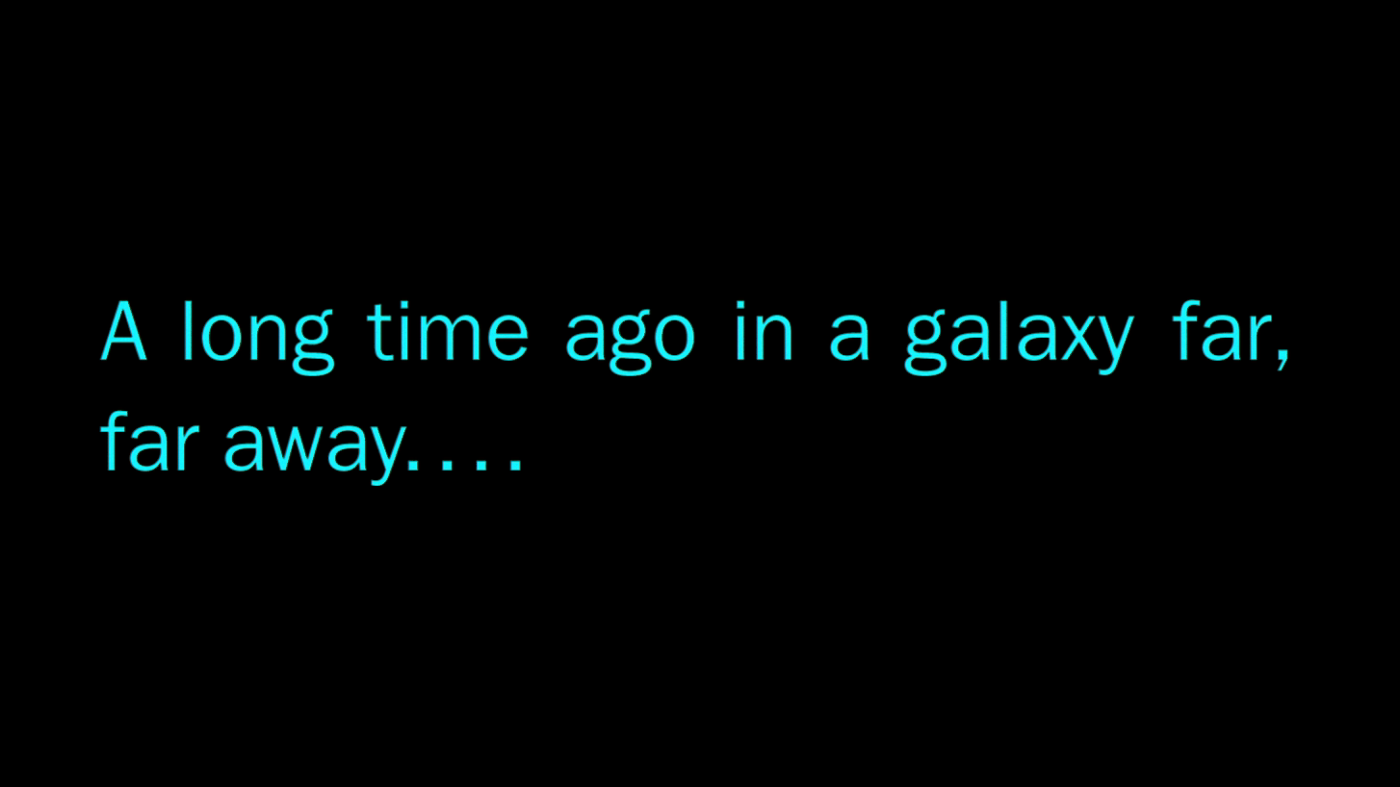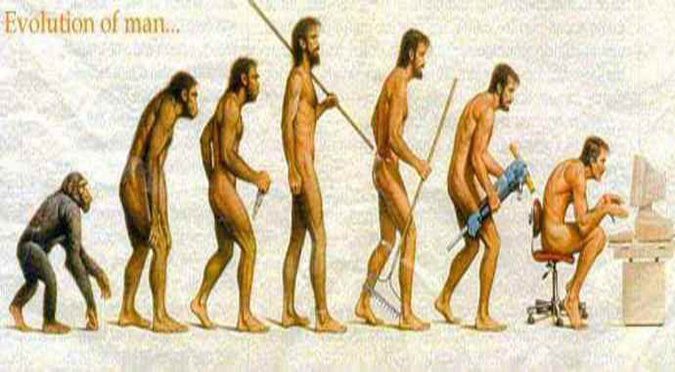
THE 30 YEARS WAR: A Recipe for Disaster!
July 26, 2012*Note: This article was first written on July 13th, 2012 and is the first entry from the original Epik Fails blog.
“Spectacular failure is better than moderate success.” – Faste, Stanford Dept Mechanical Engineering
Time’s a funny thing.
The progression of time is all relevant to our own experiences, our own bias; our own perspectives. It seems that, the older we get, time rapidly increases momentum at an exponential rate. It’s also worth noting that a genius by the name of Albert Einstein once said that time doesn’t exist, it’s just our perception, so you know, there’s that.
The passage of time is measured by the rotation of the planet, the changing of seasons, and an infernal invention known as the digital alarm clock. As it turns out, one thing we do know for certain is that this fourth dimension we call time flows in one direction, (Presumably because Father Time’s an @$#%!) but that doesn’t mean we can’t look back to where we came from…
History is essentially our haphazard recollection of the past. Ironically it’s pretty much always repeating itself, like a broken record repeatedly playing Pink Floyd’s ‘Dark Side of the Moon’. The truth that no one tells you in school is that history is secretly horrifying and that it should not be romanticized, but rather criticized. If the human race were to get a progress report on the advancement of human civilization we’d be lucky to be passing with a C- in other words: there’s some serious room for improvement!

Ideally, in a perfect (albeit fictional) world, Science class would be instructed by the dudes from Myth Busters, Band class would be conducted by John Williams, Poetry would be performed by Eminem, Computer Programming would be lectured by an Angry Video Game Nerd, and History would be taught by Mel Brooks. Seeing as that’s not the case, I’ll be your substitute teacher.
Dear college students: If history just ain’t your subject, and you find big old dusty Text Books about Dead Old Dudes incredibly boring, but still need to pass a class, you’re in luck! You see, I’ve studied my butt off to regurgitate all this useless trivia in a form you’ll hopefully understand. I envy you, because when I was struggling to stay awake during long, boring lectures from monotone Professors in Tweed (with less personality than Ben Stein) I really wished I had a blog like this to refer to; to help me put it all in perspective and above all answer the question that most history classes fail to answer: why do we give a crap?
Well, my goal is to help you give a crap.. and possibly pass that mid-term…

Let’s start at the beginning…
However, when it comes to the subject of *History Itself* it’s often hard to determine where the very beginning is exactly. There are plenty of different viewpoints and conflicting details found in the world’s many and varied “Creation Myths”, many of which have a moral theme (that would make Aesop proud) thrown in for good measure.
For example: the Greeks believed in powerful Gods, Titans, and demonic monsters that roamed the Earth. The Egyptians bowed down to an incestuous animalistic hierarchy with incomprehensibly petty family feuds. The Chinese believed the world was hatched out of a gigantic egg as told in the tale of the Three Sovereigns and Five Emperors, while the Vikings were convinced Midgard was carved by Odin from the corpse of a conquered giant. And then there were the Sumerians who were convinced that their gods were out to kill them. Seeing as their ancient Mesopotamian culture has since been obliterated, perhaps they were right?

Depicted: an ancient comic book.
These various orally-cited tales from the gossip of ‘pre-time witnesses’ tend to have very biased viewpoints as to how an omnipotent deity (or pantheon) sneezed out the planet Earth and plopped out the first few cavemen. These early stories of how existence came to be were basically mankind’s earliest attempts at figuring out the intricacies of how the world works, except this was all prior to the invention of the Scientific Method, the advent of nuclear power, and of course the all-important Hot-Dog-on-a-Stick! Nearly every culture, philosophy, spirituality, and civilization around the world has its own views on the beginning (and end) of time. Most of them are symbolic metaphors thought up to ‘explain’ natural phenomenon in this absence of scientific knowledge.

The most prevalent of these creation stories of course is the tale of Adam and Eve (and Lilith? – depending on which version you subscribe to) from the Judeo-Christian-Islamic traditions as found in the Hebrew Torah, the Old Testament Biblical Book of Genesis, and the Quran (each with their own altered details). Genesis details the fall of Man, through temptation in the Garden of Eden (Original Sin FAIL). The Biblical book goes on to follow the life and times of Noah and his family in their overly-crowded Ark, Joseph and his Technicolor Dream coat, and that one time God foiled the Babylonians plan to build a skyscraper through language barriers.

As intriguing or convincing as some of these ‘Paradise Lost’ rip-offs might be, whether any of them have an ounce of truth to them would be a moot point, because its currently impossible to verify anything without a flying DeLorean and a handy-dandy Flux Capacitor! Religion and conspiracy theorists aside, it’s fairly safe to assume that Human life began on Earth. I’m even going to go out on a limb here, siding with a massive majority of legitimate scientists across the globe, and say that modern man (Homo-Sapiens) evolved from an ape-like species called ‘Homo-Erectus’ (lol), that first appeared roughly around 200,000 years or so ago, but our planet (and universe) is far, far older…
Note from future Erik: somewhat ironically, even though we’re now causing climate change, we were also *caused by* climate change, because the conditions of the last Ice Age altered our environment, prompting our species to evolve and thrive under the harsh conditions of prehistoric Africa.

The History of History
History itself has often been divided into numerical structures by various cultures around the world. More specifically, it’s currently divided into two halves: what we (in Western Civilization that is) call BC and AD… Or what archaeologists and scientists more adequately refer to as: BCE and CE… WTF? Confused yet? Good.

“Great Scott!”
A.D. is not a shorter acronym for ADHD, nor does it mean ‘After Death’, instead it actually stands for ‘Anno Domini’ that translates from Latin to ‘the Year of our Lord’, which makes a lot more sense if you think about it for four seconds. Also, since we’re on the subject, BCE is shorthand for Before Common Era, whereas CE is simply the Common Era in which we currently reside.
Why is our notion of human history structured into such basic and broad categories? Well, glad you asked random reader of print on bounded parchment in electronic form! You see, it all started with Pope Gregory XIII (the Thirteenth), who commissioned the Gregorian Calendar during the reign of the Holy Roman Empire (in 1582), basically because chronological events were getting rather hard to keep track of. Being religious and all they decided to center all global events around the life of Jesus Christ, utilizing the structure and months of the Julian Calendar. Most of Western Civilization still follows this slightly inaccurate calendar, except for the Chinese, who are about as stubborn with their calendar as Americans are about not using the Metric System.
 In my humble opinion, this historical structure is a complete cop out. We really should have revised it after Y2K ended the world and robots forced us into slavery as human batteries. Historians, like most humans, are inherently lazy and tend to cut corners just like the rest of us when it comes to that horrible thing called work. Even if our puny human brains can’t comprehend just how old our planet really is, there really should be at least one more ‘Era’ before BC, BBC perhaps? How about BH – Before History?
In my humble opinion, this historical structure is a complete cop out. We really should have revised it after Y2K ended the world and robots forced us into slavery as human batteries. Historians, like most humans, are inherently lazy and tend to cut corners just like the rest of us when it comes to that horrible thing called work. Even if our puny human brains can’t comprehend just how old our planet really is, there really should be at least one more ‘Era’ before BC, BBC perhaps? How about BH – Before History?
 In addition to the whole BC thing, history is often divided into Elemental Ages: much like Comic Book Eras (Gold, Silver, Bronze and Copper Ages), except the non-comic-related Bronze Age actually referred to the innovation of Bronze tools and weaponry rather than the edgy comics from the 80′s and 90′s…
In addition to the whole BC thing, history is often divided into Elemental Ages: much like Comic Book Eras (Gold, Silver, Bronze and Copper Ages), except the non-comic-related Bronze Age actually referred to the innovation of Bronze tools and weaponry rather than the edgy comics from the 80′s and 90′s…
The prehistoric “Stone Age” was followed up by the previously mentioned Bronze Age during antiquity, then the Iron Age which lasted throughout the Dark Ages or Medieval Period. This eventually somehow led to the Age of Gunpowder which blew up in our faces (during the HUNDRED YEARS WAR!). Following the Renaissance, the invention of machines, and the creation of factories kick-started the Industrial Age, which completely changed the name of the game forever, much like the creation of nuclear weaponry that ignited the Atomic Age and the subsequent Cold War. (read more about ‘The Manhattan Project’ here!) Eventually, the revolutionary advent of digital / computer technology directly resulted in the Digital Age in which we now reside.
However, all these ‘ages’ are relative to the cultures and civilizations of each time period. Which brings me to…
Prehistoric History

Billions of years after the inexplicable ‘Big Bang’ and the formation of the galaxies, stars, and planets of the universe, a relatively unimpressive sphere of rock and water managed to clump together in an ideal orbit around a youthful yellow sun. This ball of mud happened to be in just the right spot for the formation of life. Not too hot. Not too cold. (The Goldilocks Equation)
It was in this primordial muck that chemicals mixed, and lightning struck. Single cell organisms and bacteria began to form and mutate on this volatile space rock. For the sake of sanity let’s skip ahead a few more billion years. These molecular flukes began to wise up, started grouping together as multi-cellular organisms, and eventually somehow evolved into creepy fish with exoskeletons. Out of the various species of sea predators, the first amphibian grew the balls to make its way on to land.
 This leap in evolution of course led to multiple branches of land-based life including but not limited to lizards, birds, marsupials, and mammals throughout the Paleozoic Era (a period of 322 million years). Then T-Rex, Triceratops, Philosopher-Raptors, Long-Necks, Barney and the rest of their dino-gang reigned supreme during the Mesozoic Eras: the Triassic, Jurassic, and Cretaceous Ages. Back in the day when absurdly massive carnivorous lizards ruled the planet with terrifying jaws of razor daggers, tiny arms, and an unfortunate lack of opposable thumbs, at least until a good 65 million years ago, when there was only one ginormous super-continent we’ve since come to know as Pangaea.
This leap in evolution of course led to multiple branches of land-based life including but not limited to lizards, birds, marsupials, and mammals throughout the Paleozoic Era (a period of 322 million years). Then T-Rex, Triceratops, Philosopher-Raptors, Long-Necks, Barney and the rest of their dino-gang reigned supreme during the Mesozoic Eras: the Triassic, Jurassic, and Cretaceous Ages. Back in the day when absurdly massive carnivorous lizards ruled the planet with terrifying jaws of razor daggers, tiny arms, and an unfortunate lack of opposable thumbs, at least until a good 65 million years ago, when there was only one ginormous super-continent we’ve since come to know as Pangaea.
And the rest is history… (uh, prehistory?)
 Our early bipedal ancestors first made their debut somewhere around one million years ago, but as far as Human History itself goes, the recording of significant events all started back a good Six-Thousand Years Ago, around 4,000 BCE give or take a few decades – which is a drop in the bucket compared to all that time where people didn’t write shit down.
Our early bipedal ancestors first made their debut somewhere around one million years ago, but as far as Human History itself goes, the recording of significant events all started back a good Six-Thousand Years Ago, around 4,000 BCE give or take a few decades – which is a drop in the bucket compared to all that time where people didn’t write shit down.
Random person raises hand, “But how do you know all that if you weren’t there?”
Well because of a little thing called Science! Scientists over the years have carefully examined fossilized evidence, and carbon dating. Also because legions of anthropologists, geologists, archaeologists, paleontologists, and I said so.
Ages of Stone and Ice

Our story truly begins before the Internet even existed! For all you kids out there, that’s way back in the day, before George Washington, Satellite Radio, Pop-Tarts, and Chuck Norris, back in the ‘good old days’ (that never existed) when Grandpa had to walk ten miles through the snow, to school (uphill both ways). The modern couch potato first made his debut on the scene following the full-scale demise of the world’s first dominant species, The Dinosaurs, whom all tragically succumbed to extinction via asteroid!

All those dumb dinosaurs, getting wiped out by an extinction level event. Idiots.
The Texas-sized rock of death from space that collided with the planet created a cloud of dust around the globe, essentially kick-starting a prehistoric nuclear winter. To put it simply: the ecosystem was totaled… but then out of the rubble, a somewhat intelligent fur-less monkey emerged from the jungles of Africa: Mankind!
Throughout one such catastrophic climate-change, years down the road (what we refer to as The ‘Last’ Ice Age), the early tribes of stone-aged homo-sapiens were chilling in caves, dreaming of what lay behind the horizon. These prehistoric ‘stoners’ eventually got bored and decided to venture off, leaving their cave-dwelling days behind in search of a better, albeit nomadic, lifestyle. Man soon discovered he had some mad-skills in the stabbing things department. Working together, the human race turned out to be rather good Mammoth Hunters and even proved quite proficient in Gathering stuff as well!

“Aw man, take a tic tac!”
During the Ice Age of the Neolithic Period (10,000 BCE), early man was a barbaric race of nomadic hunters and gatherers, as wild as the prehistoric predators they evaded, and as vulnerable as the prey they lived off. The one thing that set homo-sapiens apart from other omnivores was their innovation. Stone-age tools for hunting: spears, arrowheads, knives, and clubs. As the temperatures began to drop, rather than freezing to death in a fetal position, a caveman realized it could co-opt the fur of other animals. And lo the first fashion designer was born.

Neanderthal pictured above.
Early forms of language developed as a necessity for coordinating the hunting of game, and avoiding being eaten by Sabre-tooth tigers. It was during this time that Man first met Wolf, and through mutual interests (food) became best friends. Elsewhere in Eurasia, another humanoid species was developing its own distinct culture: The Neanderthal.
Turns out, contrary to myth, Neanderthals were actually quite intelligent, and in some ways may have been superior to us… well except for the fact that we may have wiped them out, because we couldn’t keep our genocidal nature to ourselves, or at least that’s one theory- the other theory is that all the male Neanderthals were bored to death by the incessant nagging of their wives to keep up with the homo-sapiens down the street. Whatever the cause, Neanderthals went down in history as the first in a long line of species to go extinct by proximity to homo-sapiens.

“Hey dude, check this out!”
It was during these golden years of pure anarchy that certain key developments took place, not necessarily in chronological order: the creation of the wheel, the epiphany of fire, the invention of communication, and the all-important discovery of agriculture. We can only speculate that these events immediately led to more than three or four possible career choices for the various nomadic hunter/gatherers who would eventually settle into small villages that would mutate into the earliest civilizations, over way too long a time period.
So at one point people figured out how to speak to one another without the use of grunts and knuckles. The formation of communication which by extension led to primitive communities allowed for the exchange of ideas which brought about the earliest form of art: cave paintings which by extension led to the expression of thoughts and feelings, which eventually led to the employment of psychologists.
Eventually the agricultural communities of mankind settled around four flourishing river valleys where the earliest cultural civilizations would spring up: The Egyptian Nile, Tigris-Euphrates Rivers of the Fertile Crescent (Mesopotamia / Iraq), the Yellow River Valley (China), and the Indus River of India.
The Birth of ‘Civilization’
Seriously though, the importance of agriculture cannot be overstated. Without the agricultural revolution we would still be relying on sharpened sticks and athleticism to eat. Farming allowed us to settle down. It was the catalyst for society, architecture, and any human pursuit beyond merely surviving and stuff. The simple act of planting and watering a seed in soil would forever change… EVERYTHING!
 Language itself is probably the single most important invention in human history – you know, seeing as we couldn’t have civilization without it. As for the development of writing stuff down, that train wreck started a few thousand years after prehistoric man stopped drawing on cave walls. The reason for its inception? Record keeping, in order to keep track of stuff like taxes, grain, gold, and old rare baseball cards.
Language itself is probably the single most important invention in human history – you know, seeing as we couldn’t have civilization without it. As for the development of writing stuff down, that train wreck started a few thousand years after prehistoric man stopped drawing on cave walls. The reason for its inception? Record keeping, in order to keep track of stuff like taxes, grain, gold, and old rare baseball cards.
This calligraphic chicken scratch known as written language was eventually employed in the use of gossip among the few literate record keepers, and those accounts were found mistranslated and labeled as epic poems (like that one about that over-sized piñata called ‘The Trojan Horse’), and early drafts of the Bible (see The Dead Sea Scrolls).
These recorded legends were outlandish tales of mighty, larger-than-life, warriors whose over-exaggerated feats were only equaled by the mythical beasts they fought bare-handed for the amusement of petty gods. For another couple millennia, these action/adventures would substitute for historical narratives until history itself was single-handedly invented by a Greek man by the name of Herodotus.

Herodotus: The Father of History. Your Welcome.
In the Fifth Century BC, Herodotus wrote about his traumatic experiences in combat during the Greco-Persian Wars. The originally titled document “The Histories” was not only the only thing he is known to have written, but it also happened to be full of inaccuracies due to unreliable sources which often turned out to be contradictory.
Herodotus’s work chronologically delved into the dynasties of Persia leading up to Xerxes and his (failed) conquest of Greece, which he compiled during his travels. Although many have called him the Father of History, there are also those who have called him the Father of Lies, due to his dubious reporting skills and tendency to list absurd accounts as truth.
I like to call Herodotus the Father of Fail.
The Legacy of Herodotus
Even today, our understanding of our own history is skewed by bias, farcical facts, selective omission, missing pages, and multiple viewpoints. This blog is no different, but at least it’s got the guts to report the ugly truth: the facts that are often left on the cutting room floor. Since historians like to focus in on whomever won whatever war, I decided to do the opposite and root for the losing team, or at least explain why or how they messed things up.

Sometimes great things happen at a greater cost, and yet sometimes hope emerges from the darkness to forge a brighter future! A philosopher once said, “To Err is Human… (To forgive Divine).” It’s not in failing does a person show their worth, but in using the knowledge gained from one’s mistakes to achieve true greatness. During a hopeless battle, surrounded by a legion of lethal enemies, a great warrior once proclaimed in defiance, “Never give up, Trust your instincts!” …then again that may have been Peppy from ‘Star Fox 64′…
We as humans must rise to the challenge of overcoming our past transgressions. After all, it’s only sensible to try and learn from the mistakes of history, right?

Erik Slader
Hope you enjoyed this edition of “Epik Fails!”, if you have any comments, questions, concerns, or suggestions let me know in the comments below! Also, be sure to ‘Like’ EPiK FAILs on Facebook! (www.Facebook.com/EpikFails), and SHARE IT with your friends!
Next: The 30 Years War: A Recipe for Disaster!
—Sources:
“Mankind” – History Channel Documentary (2012)
http://dinosaurs.about.com/od/dinosaurbasics/a/dinosaurages.htm
http://earthguide.ucsd.edu/virtualmuseum/climatechange2/01_1.shtml
http://humanorigins.si.edu/evidence/human-fossils/species/homo-neanderthalensis
http://www.icsd.k12.ny.us/legacy/highschool/socstud/global2_review/start_of_civilization.htm
“The Histories” by: Herodotus






9 Comments
[…] B.C.E. (Before Common “Error”) – A Note On Time […]
Reblogged this on EPiK FAILs!!.
I do not even know how I ended up here, but I thought this post was good.
I do not know who you are but definitely you are going to a famous blogger if you aren’t already 😉 Cheers!
[…] I also recently revised and reworked the intro chapter: B.C.E. – Before Common ‘Error’ (A Note on Time) […]
[…] —-B.C.E. – Before Common ‘Error’ […]
[…] B.C.E. – Before Common ‘Error’ […]
[…] B.C.E. – Before Common ‘Error’ […]
What if there was internet 2000 years ago
[…] started with a meandering (and somewhat pretentious) essay I wrote back on July 13th, 2012, called “B.C.E. – Before Common Error”. While I’m not particularly proud of that first article all these years later, that is where […]